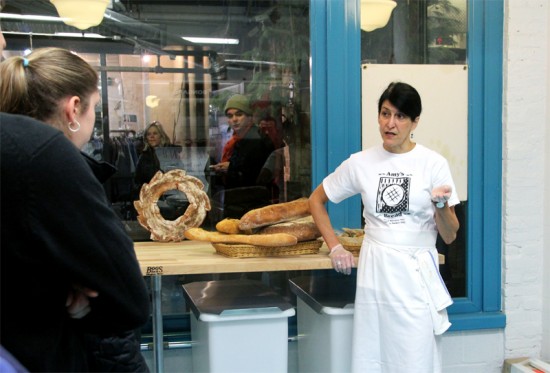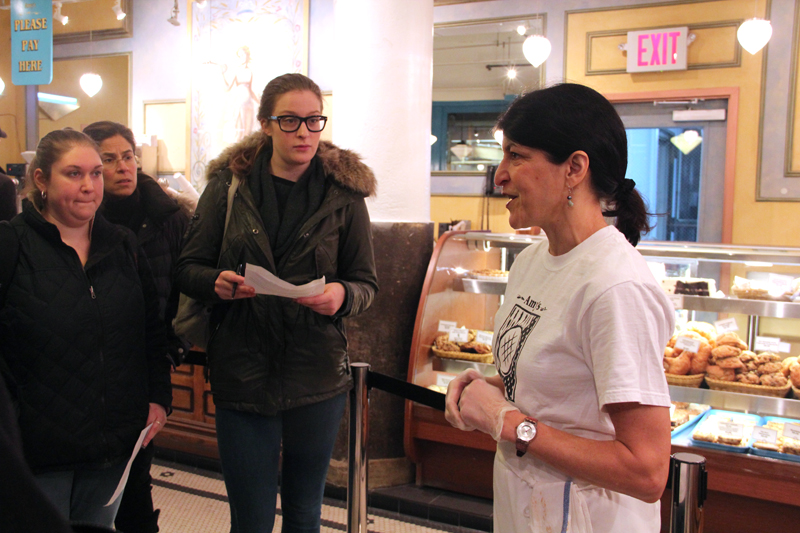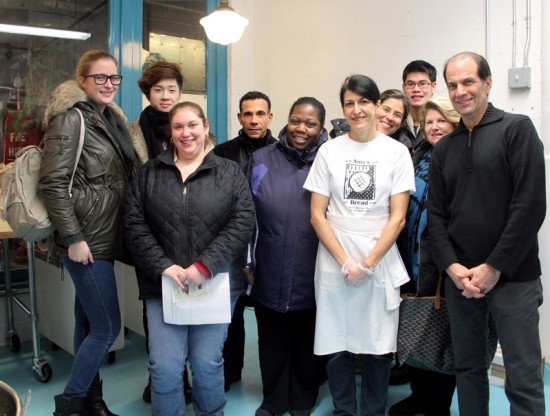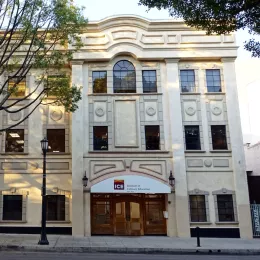How does an aspiring marketing professional become one of New York's top bakers? Like many of our students, Amy Scherber was a career changer, motivated by her passion for food.

In the 1990s, New York was far from the bountiful paradise of bakeries that we find today. When Amy's Bread opened in Hell's Kitchen, it was a pioneering force in a bread wasteland, a powerhouse concept that has flourished over more than twenty years of business. It's no wonder that when Culinary Management instructor Alan Someck decided to take his Culinary Management students on a bakery field trip that Amy's was the obvious choice.
After a brief tour and tasting at Amy's Chelsea Market outpost - including her signature semolina bread with golden raisins and fennel seed - students got to ask the nitty-gritty questions. As it turns out, Amy had just signed a lease for another space when the opportunity to open in Chelsea Market came on her radar. She lost money in the deal but knew that the then-empty warehouse would provide the opportunity to fulfill her vision: to open a bakery where customers could see the bread-making process.
Today, most of Amy's baking has been outsourced to a large space in Long Island City, but she intends to maintain this transparent mission. The oven from her original Hell's Kitchen location was recently installed in the Chelsea Market space, and her staff will resume on-site bread baking in the near future.

Amy also shared insight into the trials and joys of expanding her business. Certain products, like her olive twists, were as much a product of exhaustion and accident as proactive innovation. That kind of exhaustion can fuel creativity, but many bakers fail to overcome such odds. As Amy explained, the price margin in bakeries is much smaller than in restaurants. For example, her strawberry shortcake - made with high-quality ingredients such as greenmarket berries - can only retail for a meager $4-5, whereas a restaurant might charge $12 for the same product. Moreover, starting a new small business is more expensive than most owners anticipate, as it takes time to build credit.
In addition, Amy explained that it's important to know your stores. Her West Village customers buy the most coffee, Chelsea Market moves the most bread and Hell's Kitchen is a hotspot for sweets. But where other owners might stop there in calibrations, Amy strategizes to the day. If Wednesday afternoons show a trend toward increased sweet consumption, but Monday is more of a morning bread crowd, she adjusts and re-adjusts to fit her customers' needs. And let's not forget - on top of retail customers, she has over 300 wholesale accounts to attend to.
When asked expressly for advice, Amy urged Alan's class of budding entrepreneurs to spend time working in the type of business they would like to open themselves. While aided by her study of Economics in college and time baking in restaurant kitchens, Amy admits she wishes she had spent more time working specifically in bakeries before starting her business. Last but not least, she underscored the importance of a coherent concept. Even if someone has a fully-developed business idea, it is essential that the consumer can effortlessly grasp it - from the name to the decor, the service style, the product, etc.

Looking out onto the eager eyes peeking into Amy's oversized windows, it's clear that she applied this final lesson early on. Her famous oversize windows breed a connection between staff and those they serve, an honesty and intimacy that has been an underpinning of Amy's philosophy from day one.



